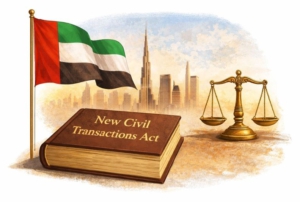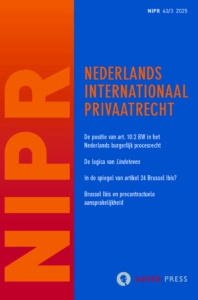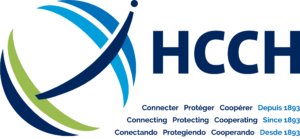Views
‘Salami-slicing’ and Issue Estoppel: Foreign Decisions on the Governing Law
One of the requirements for issue estoppel is identity of issue. However, the process of ‘refining down’ or ‘salami-slicing’[1] is not always clear. The argument that the issue is different because the two courts would arrive at different conclusions on the governing law is increasingly being utilised as a litigation strategy. If the first court applied its choice of law rules to determine that the governing law of the claim is Utopian law, would an issue estoppel arise over this decision in the second court if under the second court’s choice of law rules, Ruritanian law is the governing law? The answer depends on whether the ‘slice’ is thick or thin. Is the relevant issue ‘What law governs the dispute or issue?’ or ‘What law is identified by our (forum) choice of law rules to govern the dispute or issue?’ Read more
The Conflict-of-Law Rules in the UAE’s New Civil Transactions Act: Yet Another Missed Opportunity!

I. Introduction
On 1 January 2026, the Legislative Decree No. 25/2025 promulgating a new Civil Transactions Act (hereafter ‘NCTA’) entered into force. The NCTA repeals and replaces the former Federal Civil Transactions Act of 1985 (hereafter ‘the 1985 Act’). The adoption of the NCTA forms part of the State’s broader and ongoing effort to comprehensively update and modernize its legal system, an effort that has already touched major legislative instruments, including, among many others, the 2022 Civil Procedure Act, the 2024 Personal Status Act, the 2023 Competition Act, and the 2022 Commercial Transactions Act.
Since the 1985 Act contained a codified set of conflict-of-laws rules, its replacement necessarily entails a re-examination of the UAE’s private international law framework and, at least in principle, the introduction of new or revised choice-of-law provisions. Against this background, this note offers a preliminary and necessarily tentative assessment of the modifications introduced by the NCTA. It focuses on the main features of the new law in relation to choice-of-law regulation, highlighting both the changes introduced and the limits of the reform. Read more
Enforceability of foreign judgments for punitive damages under English law and South African law
This post is posted on behalf of Jason Mitchell, barrister at Maitland Chambers in London and Group 621 in Johannesburg.
In Motorola Solutions v Hytera Communications Corporation, the Court of Appeal held that a judgment that includes a punitive damages component is unenforceable in its entirety (the judgment is available here). The punitive component cannot be severed so that the judgment creditor can enforce non-punitive components.
Motorola sued Hytera in the U.S. One of its causes of action was under the Defend Trade Secrets Act, a federal statute that allows for punitive damages of up to double any compensatory damages. On that cause of action, the U.S. court awarded Motorola compensatory damages of $135 million and punitive damages of $270 million. Motorola tried to enforce the U.S. judgment in England. Read more
News
Dutch Journal of PIL (NIPR) – issue 2025/3
The latest issue of the Dutch Journal on Private International Law (NIPR) has been published. It contains the following contributions.
NIPR 2025, Issue 3
Editorial
Mathijs ten Wolde / p. 421
Articles
Steven Stuij, De positie van art. 10:2 BW in het Nederlands burgerlijk procesrecht / p. 423-444
Abstract
Article 10:2 of the Dutch Civil Code stipulates that the rules of private international law as well as the applicable law designated by those rules are to be applied ex officio. There has been a debate as to the positioning of this provision in relation to other rules of civil procedure on party autonomy as a result of two cases of the Dutch Supreme Court (‘Hoge Raad’). This contribution will address Read more
Public consultation on a possible new HCCH convention
Just 10 days left to participate in the public consultation on the Draft Text of a possible new HCCH convention on parallel proceedings and related actions!
The public consultation, launched on 18 November 2025, will close on 26 January 2026 at 9.00 a.m. CET. Experts, practitioners and judges from diverse legal traditions with experience in cross-border litigation and private international law more broadly are encouraged to participate in the consultation.
In 2021, the HCCH established a Working Group on matters related to jurisdiction in transnational civil or commercial litigation (WG), comprised of over 60 subject-matter experts from across the globe. The WG, after nine meetings, has developed a Draft Text containing provisions aimed at addressing parallel proceedings and related actions taking place in multiple States, acknowledging the primary roles of both jurisdictional rules and the doctrine of forum non conveniens. The objective of this future instrument would be to enhance legal certainty, predictability, and access to justice by reducing litigation costs and mitigating inconsistent judgments in transnational litigation in civil or commercial matters.
The public consultation seeks feedback on whether the Draft Text would, in practice, assist in addressing such matters and how the provisions in the Draft Text could be improved. The consultation is supported by a Consultation Paper comprising an Executive Summary, a detailed explanation of the key provisions and the operation of the Draft Text, and specific questions.
Responses received from this consultation will be submitted to all HCCH Members for consideration in advance of the next meeting of the Council on General Affairs and Policy (CGAP), the governing body of the HCCH, in March 2026, at which the Members of the HCCH will decide on the next steps for the project.
For more information on the public consultation, please visit: https://www.hcch.net/en/projects/legislative-projects/jurisdiction/public-consultation
This post is published by the Permanent Bureau of the Hague Conference of Private International Law (HCCH).

International Society of Family Law (ISFL) World Conference 2026 – Istanbul
The 19th World Conference of the International Society of Family Law (ISFL) will take place in Istanbul, Türkiye, from 9 to 12 September 2026. The conference will be hosted by Pîrî Reis University at its Marine Campus in Tuzla, offering a distinctive coastal setting for this major event.
The theme of the conference is “Family Law & Vulnerability.”
The conference will explore how family law engages with different forms of vulnerability across diverse legal systems and social contexts. Contributions addressing the theme from comparative, interdisciplinary, theoretical or practice-oriented perspectives are welcomed.
The deadline for abstract submission has been extended to 20 February 2026. Abstracts may be submitted for paper presentations (including jointly authored papers) as well as for organized panels. Detailed submission guidelines are available on the conference website.
Conference registration will open in late February 2026. Registration fees for participation in the scientific program are as follows:
- ISFL members: €400 (early bird) / €450 (regular)
- Non-members: €500 (early bird) / €550 (regular)
- Participants from low-income countries: €250 (early bird) / €300 (regular)
The early bird rates will apply until 1 May 2026. Registration fees cover access to the scientific sessions of the conference; social events will be subject to separate registration and fees.
The conference venue, Tuzla, is located on the Asian side of Istanbul and is conveniently close to Sabiha Gökçen International Airport, which serves numerous international and domestic flights. Tuzla is well connected to other parts of the city by public transport.
A list of recommended hotels on the Asian side of Istanbul will be published on the conference website in due course, providing a range of accommodation options with convenient access to the venue by public transport.
Further information on registration procedures, accommodation and the conference program will be made available on the official conference website: www.isfl2026.org.


